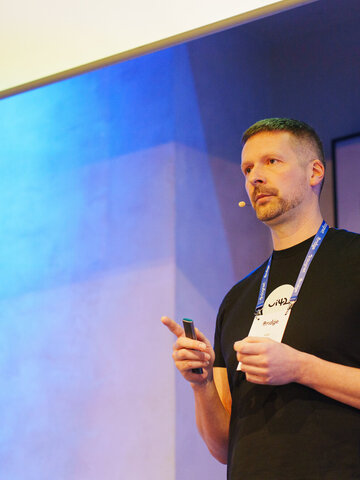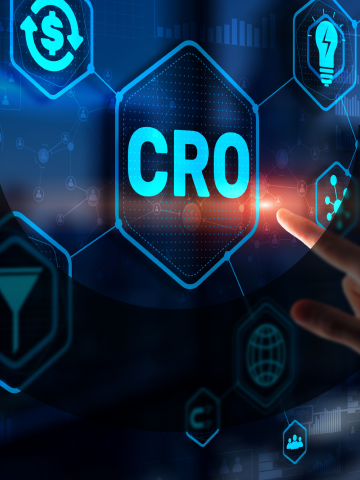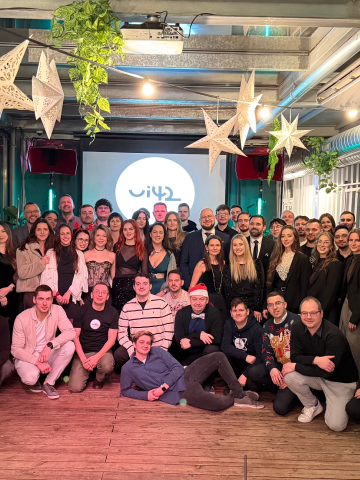Indexation
What does it mean
Indexing is the process by which search engines like Google collect, analyze, and store information from billions of web pages into their extensive databases, called indexes. If your website is not indexed, it simply does not exist for the search engine. This means it will never appear in search results, no matter how high-quality your content is or how well it is optimized for SEO.
More info
How Indexing Works: From Crawling to Display
The entire indexing process can be divided into three main phases
1. Crawling:
-
What happens: Search engines use special programs called "crawlers" (also known as "spiders" or "robots" – e.g., Googlebot) that continuously browse the internet. They start from known websites and follow links to new pages and updated content.
-
The role of links: Links are like roads on a map for crawlers. The more quality links lead to your site (whether internal from other pages of your website or external from other trusted websites), the easier and more frequently the crawler will discover it.
-
Sitemaps: A Sitemap XML file is like a detailed plan of your website for crawlers, telling them which pages on your site are important and when they were last updated. Proper setup is crucial for efficient crawling, especially for larger websites.
2. Indexing:
-
What happens: After the crawler discovers a page and downloads its content, the information is sent to the search engine's databases. Here, the page is analyzed and processed. Search engines pay attention to text, images, videos, keywords, HTML structure, meta data, and many other factors.
-
Content analysis: Search engine algorithms analyze the relevance and quality of the content to understand what the page is about and for which search queries it might be relevant.
-
Storing in the index: If the page is evaluated as high-quality and relevant, its information is stored in a massive index. This index is essentially a gigantic, organized list of all web pages that the search engine knows and considers relevant for display in results.
3. Ranking:
-
What happens: When a user enters a search query (e.g., "digital marketing Bratislava" or "SEO agency Slovakia"), the search engine scans its index to find the most relevant pages.
-
Algorithms: Hundreds of factors (known as ranking factors) come into play when determining the order of pages in search results. These include content quality and relevance, website authority, loading speed, mobile responsiveness, user experience, and many others.
-
Displaying results: Based on these factors, the search engine displays results from the most relevant to the least relevant.
How Does Indexing Work with AI Tools?
With the advent of generative AI, such as chatbots and assistants integrated into search engines (e.g., Google Search Generative Experience, Microsoft Copilot, ChatGPT with browsing), the way information is "indexed" for these systems slightly differs but is closely related to traditional SEO.
-
Using existing indexes: Most AI tools do not perform their own extensive crawling processes from scratch. Instead, they often use existing search engine indexes (e.g., Google, Bing) through their APIs or integrated web browsing features. This means that if your website is well-indexed for traditional search engines, it is already on the right path for AI tools to discover it.
-
Structured Data (Schema Markup): For AI tools, it is especially important that the content is clearly structured. Using schema markup (structured data), you can provide search engines and AI tools with explicit information about your page's content (e.g., article type, product, review, FAQ). This helps AI better understand the context and extract relevant information that can be used in generating responses.
-
Natural language and context: AI tools are trained to understand human language and context. Therefore, it is important to create content that is informative, comprehensive, answers questions, and uses natural language, as a person would in a conversation. Including FAQ sections, summaries, and direct answers to common questions is very beneficial for GEO (Generative Search Optimization).
-
Trustworthiness and authority (E-E-A-T): Similar to traditional SEO, AI tools also prioritize information from trustworthy and authoritative sources. Ensuring that your content meets the criteria of E-E-A-T (Expertise, Experience, Authoritativeness, Trustworthiness) is crucial for your website to be selected as a source for AI-generated responses.
-
Optimization for different types of searches: AI tools increasingly process voice searches and conversational queries. Optimization for these forms of searches (e.g., using long-tail keywords, direct answers to questions) is part of GEO.
How Does Google Index?
Google is the dominant search engine, and its indexing process is the most complex and efficient. It uses a sophisticated system that is constantly evolving. Key tools and processes of Google include:
-
Googlebot: This is the name for Google's crawler. There are several types of Googlebots, such as Googlebot Desktop, Googlebot Smartphone, which simulate visiting pages from different devices.
-
Google Search Console (GSC): This is a free tool from Google that allows website owners to monitor the indexing status of their site. Here, you can see which pages are indexed, which have issues, and even request Google to re-index a specific URL.
-
Mobile-first indexing: Google primarily indexes the mobile version of your website. If your mobile version is of poor quality or missing, it can negatively affect your indexing and thus your placement in search results.
-
Content quality and authority: Google does not index just anything. It strives to include only quality, relevant, and trustworthy content in its index. If your site is full of duplicate content, spam, or has low authority, it may hinder its proper indexing.
{box_find_out_more}
Why Might Your Page Not Be Indexed?
There are several reasons why your web page may not be properly indexed:
-
Robots.txt file: This file tells crawlers which parts of your site they can and cannot browse. If set incorrectly, it can block Googlebot's access to important pages.
-
Meta tag "noindex": If a page contains the meta tag
<meta name="robots" content="noindex">, you are telling the search engine not to index it. This is often used for pages with duplicate content or those you do not want to appear in search results (e.g., thank you pages after conversion). -
Server errors or slow loading: If your site frequently goes down or loads too slowly, Googlebot may not reach it and may have trouble indexing it.
-
Low-quality content or duplicate content: Google strives to combat spam and low-quality content. If your content is copied or provides no value, it is less likely to be indexed and rank well.
-
No internal/external links: If no links lead to your page, it is difficult for Googlebot to discover it.
-
New page/website: New pages and websites need time for Google to discover and index them.
ui42 tip: If you need to speed up the indexing of new or updated content, use Google Search Console. In the top bar (URL Inspection tool), enter the URL of the page. If the page is already indexed but you want Google to notice the latest changes, or if it is not yet indexed, you will see a button "Request indexing". Click on it. This will speed up the crawling of your page by Googlebot and its inclusion in the index, thereby quickly improving your online visibility.
Indexing and ui42: How Can We Help You?
-
Technical SEO audits: We will check your website to identify and fix any issues preventing indexing, such as errors in robots.txt, noindex meta tags, sitemap issues, or slow loading. If you are interested in how an SEO audit is done, how long it takes, and what the outputs are - read our blog.
-
Content optimization: We will help you create quality, relevant, and optimized content that Google likes to index and display.
-
Linkbuilding: We will develop a strategy for acquiring quality backlinks that improve the visibility and authority of your website for search engines.
- Comprehensive SEO and GEO: We focus not only on traditional SEO for search engines like Google, Bing but also on GEO (Generative Search Optimization). This means that we optimize your content for AI tools (ChatGPT, Gemini, AI Overview in Google, etc.) to be relevant and usable even in AI-generated responses.
Latest news
Contact us
Don't miss out on the latest news from the world of UX, programming, analytics, and marketing.











